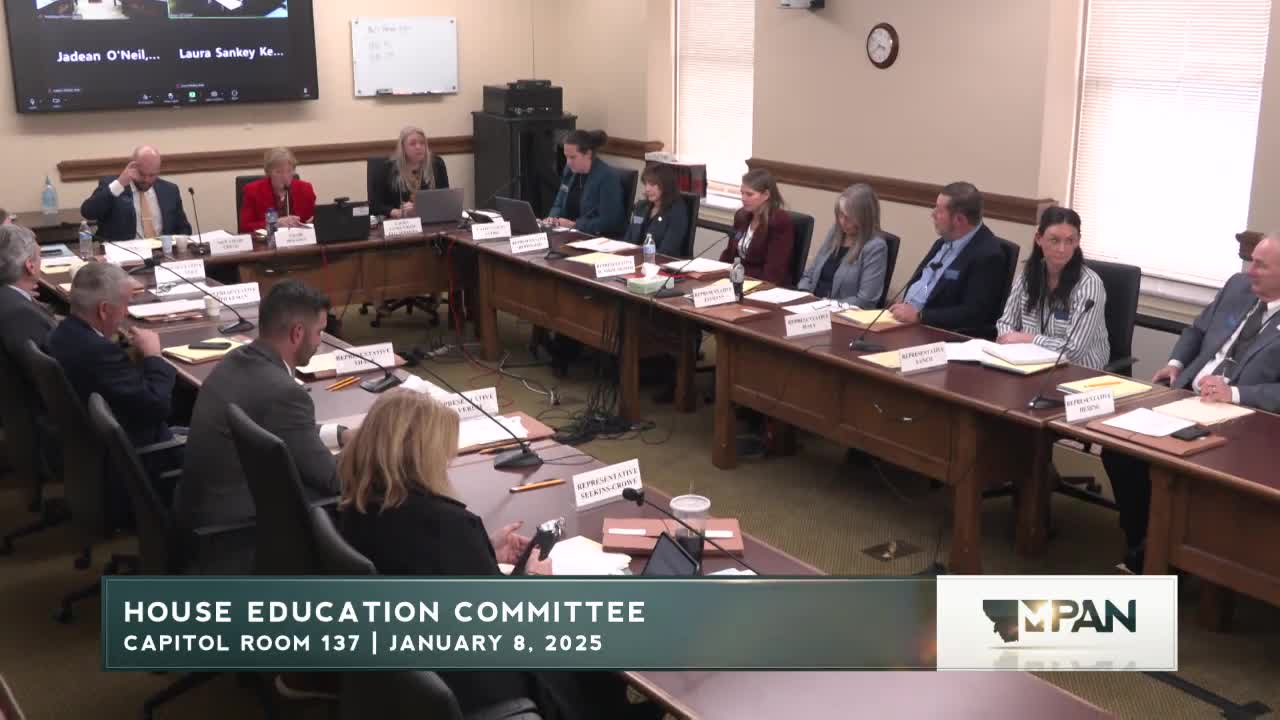House Education Committee hears bill to raise university-system supplemental TRS contribution to address past-service liability
Get AI-powered insights, summaries, and transcripts
Subscribe
Summary
The House Education Committee heard testimony on a Teachers' Retirement System (TRS) bill that would increase the supplemental employer contribution tied to the university system's past-service liability; the bill carries a substantial fiscal note and is not included in the governor's budget.
The House Education Committee on Wednesday heard lawmakers and the Teachers' Retirement System describe a proposal to increase the supplemental employer contribution paid on behalf of university-system employees who participate in a defined-contribution retirement plan, to help pay an unfunded past-service liability by the statutory deadline of July 1, 2033.
Sean Graham, executive director of the Montana Teachers' Retirement System, told the committee the contribution rate would need to rise substantially from the current 4.72 percent to roughly 14.21 percent to meet the 2033 payoff date, and that doing so generates a large fiscal impact on the university system and the state general fund. “If you look at the fiscal note … the total revenue into the TRS pension fund would be about $30,000,000 in fiscal year 2026 and increase in subsequent years,” Graham said.
The bill implements a periodic review that the TRS board is required to perform under existing law and would adjust the employer supplemental contribution that the university system pays for employees who had the option in the 1990s to join a defined‑contribution plan rather than TRS. Graham said the July 1, 2033 payoff date has been law since the late 1980s and that the date is getting closer each biennium, increasing the annual contribution required to finish repayment in time.
Why it matters: the supplemental contribution is an employer payment meant to cover the university system's share of accrued benefits for employees who remained in TRS or retired under the defined‑benefit plan while others joined the university system's defined‑contribution plan. Graham said the contribution is funded by a mix of state general fund and university tuition and other institutional revenues; the TRS executive director told the committee the governor’s budget does not include funds for this specific increase.
Committee members asked for context and options. Representative Lee Deming asked where the money would come from if the legislature adopted the increase; Graham said the committee would need to identify funding, which could require cuts elsewhere or new appropriations. Representative Mark Thane questioned how long the university-related benefits would continue to be paid and whether the unfunded liability would ever “run out.” Graham said the system still has current TRS members working for the university system (he referenced roughly 187 such members), and that absent changes the liability would not pay itself off under the current 4.72 percent rate; under TRS actuarial assumptions the system as a whole is projected to reach full funding in about 21 years, assuming those assumptions hold.
Graham told the committee the TRS board has brought similar requests at every session since 2011 and that the last time the supplemental rate was adjusted was 2007. He also said the bill is likely to carry a significant fiscal note for both the state and university institutions and that the request is not included in the governor’s budget.
No executive action or committee vote was taken on the bill at the meeting; Representative Matthews sponsored the bill and closed the hearing after questions. The committee deferred any funding decisions to later budget and appropriations processes.
